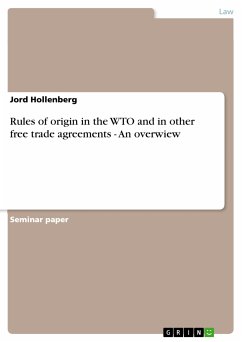Seminar paper from the year 2001 in the subject Law - European and International Law, Intellectual Properties, grade: 68% (entspr. 13 P.), Trinity College Dublin (-), course: Economic & Legal Aspects of Competition Policy, language: English, abstract: Price competition constitutes the most essential form of competition, as different prices for similar products promote the interchangeability of goods. In a competitive market, the price depends on the demand for the product. If there is little demand, the company will have to lower the price it can charge in order to compete with its rivals. Consumers who have choice are more likely to buy the product, which they think, is of good value. Therefore, to stay in the market, companies must seek to produce at minimum costs and to sell the product at a price, which includes a reasonable profit. The function of price competition is to keep prices down to the lowest and to encourage the movement of goods between the Member States . If a good product is sold at an inflated price, consumers might purchase a less appropriate product, which may not satisfy them. Thus price fixing, both horizontal and vertical, is the most obvious infringement of competition law . While horizontal agreements can eliminate inter-brand competition, price fixing between rivals, which also bind distributors (horizontal/vertical agreement) can restrict inter-brand as well as intra-brand competition. Mere vertical agreements, applied by suppliers individually, can cause horizontal effect as well, because it removes competition between distributors. Competition can easily be restricted from a position of dominance. In order to drive smaller companies out of the market or to prevent others from entering, a dominant undertaking can abuse its economic power and charge prices which other firms cannot compete with. The first Common Law country which had to deal with the issue of pricing, were the United States after the introduction of the Sherman Act 1890. In US v. Addyston Pipe and Steel Co. , the Supreme Court held pricing to be illegal per se under sec. 1 of the Sherman Act 1895 . An explanation for this holding can be found in Trenton Potteries : ′The power to fix prices […] involves power to control the market and to fix arbitrary and unreasonable prices.′ [...]









